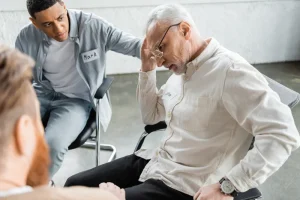Managing Relapse Triggers: Key Strategies for Recovery

If you have a 12-step sponsor, Drug rehabilitation this can be an excellent time to call him or her, so you will have the right support as you put new practices into place coping with inevitable family conflicts. Recovering individuals can carry out personal exercises where they make a list of the people, places and things that remind them of their substance-using life. Asking certain questions about external triggers can help prevent relapse. Family and friends who use substances put people in recovery in a perilous situation where they may be tempted to accept a drink or consume a drug. Even people who don’t use illicit drugs can be a trigger threat to someone in recovery.
- It is important for individuals in recovery to have a supportive network of friends and family who can provide emotional support.
- Their ability to monitor their loved one in recovery can be crucial in preventing a relapse.
- CBT effectively reduces the risk of relapse and is an integral component of the recovery process.
- Substance abuse relapse occurs when a person who has attempted to stop using a substance begins to use it again.
- Internal triggers act in reverse, associating these signals to the substances that elicit them.
- They are ashamed of the last time they relapsed and may have developed negative behaviors to cope with their thoughts.
Find A Center Near You
Learning your own specific triggers can be important in relapse prevention planning and can help you manage cravings and triggers when they occur. Relapse prevention is a skill that takes dedication and following relapse prevention strategies. You can achieve this by recognizing your triggers and developing healthy coping skills.
Emphasizing Emotional Awareness (HALT)

This could involve going to a bar or liquor store, contacting your dealer, or retrieving your old stash. To make the season meaningful, focus on creating new traditions, spending time with loved ones, volunteering, and practicing gratitude. Avoiding high-risk scenarios can protect your sobriety during the holidays.
More About Live Free Recovery
- By understanding these emotional triggers and incorporating healthy coping mechanisms into daily life, individuals can build resilience and prevent relapse.
- This state of mind is dangerous because it encourages bad health practices that can eventually lead to a full-blown relapse.
- If you know what triggers you, you can ensure you’re not in situations where you have to face them.
- Once a person becomes significantly physically dependent, withdrawal symptoms and drug cravings may be common side effects if drinking or drug use slows or stops suddenly.
The way that the brain links memories is a powerful tool that is used to help you recall important information, but that may also affect your recovery process. Everyone has had long, difficult days that end with the thought, “Why do I even bother? ” This can be a difficult question to ask yourself if you have a substance abuse disorder. Maybe right now you cannot answer the question of why you bother trying, but those answers exist, often in the form of children, a spouse, or a project or cause about which you are passionate. Again, this can be an opportune time to contact your 12-step sponsor. The helpline at AddictionResource.net is available 24/7 to =https://ecosoberhouse.com/ discuss the treatment needs of yourself or a loved one.

Identifying Triggers

Therapy can help people overcome the cognitive challenge of acknowledging types of relapse triggers the difficulty of recovery but realizing that sustaining an addiction is far harder. People who struggle with addiction need effective ways of tolerating, managing, and making sense of the negative feelings encountered in daily life. Alcohol, drugs, or addictive behaviors may have provided temporary relief from those feelings in the past, but you can’t rely on them anymore.
- They also may begin to experience erratic eating and sleeping habits, and their desire for recovery often wanes due to a lack of using their support systems.
- If you are starting to consider relapse, you may find that you are exposing yourself to possible triggers, even subconsciously.
- This could include family, friends, sponsors or other members of your addiction recovery community, just to name a few people.
- Enlist the help of a friend, counselor or sponsor to get down the triggers you may not think of right off the bat.
- SPARO helps you identify where to unhook from automatic reactions and choose more supportive actions.